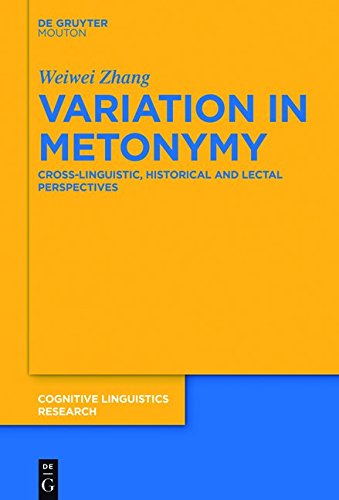

Most ebook files are in PDF format, so you can easily read them using various software such as Foxit Reader or directly on the Google Chrome browser.
Some ebook files are released by publishers in other formats such as .awz, .mobi, .epub, .fb2, etc. You may need to install specific software to read these formats on mobile/PC, such as Calibre.
Please read the tutorial at this link: https://ebookbell.com/faq
We offer FREE conversion to the popular formats you request; however, this may take some time. Therefore, right after payment, please email us, and we will try to provide the service as quickly as possible.
For some exceptional file formats or broken links (if any), please refrain from opening any disputes. Instead, email us first, and we will try to assist within a maximum of 6 hours.
EbookBell Team

4.3
18 reviewsThe monograph presents new findings and perspectives in the study of variation in metonymy, both theoretical and methodological. Theoretically, it sheds light on metonymy from an onomasiological perspective, which helps to discover the different conceptual or lexical "pathways" through which a concept or a group of concepts has been designated by going back to the source concepts. In addition, it broadens the perspective of Cognitive Linguistics research on metonymy by looking into how metonymic conceptualization and usage may vary along various dimensions. Three case studies explore significant variation in metonymy across different languages, time periods, genres and social lects. Methodologically, the monograph responds to the call in Cognitive Linguistics to adopt usage-based empirical methodologies. The case studies show that quantification and statistical techniques constitute essential parts of an empirical analysis based on corpus data. The empirical findings demonstrate the essential need to extend research on metonymy in a variationist Cognitive Linguistics direction by studying metonymy s cultural, historical and social-lectal variation.
"